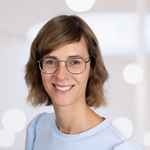
Communication Science: Research Master's
Study programme
The Research Master's in Communication Science spans two years, with full-time on-campus study. During this time, you'll dive into the latest research in communication science, blending broad theory with specialised courses in political, persuasive, corporate, or entertainment communication. Alongside this, you'll learn about research methods and can apply your knowledge and skills by doing communication research either at a university or during an internship in a professional setting.
COURSES
SEMESTER 1
SEMESTER 2
EC
-
Understanding Communication TheoryPeriod 16
-
Good Research PracticesPeriod 16
-
Advancing and Building Communication Science TheoryPeriod 26
-
Using R for Data Wrangling, Analysis, and VisualisationPeriod 26
-
Evaluating ResearchPeriod 36
-
Substantive Master's Elective CoursePeriod 46
-
Survey DesignPeriod 46
-
Experimentation in the Social SciencesPeriod 56
-
Content AnalysisPeriod 56
-
Qualitative Research MethodsPeriod 66
Compulsory course
Elective
Specialisation

Experimentation is arguably one of the most important methods of studying social processes.Dr. Eline Smit about Experimentation in the Social Sciences, read more
Extra information
Experience the programme
Frequently asked questions


